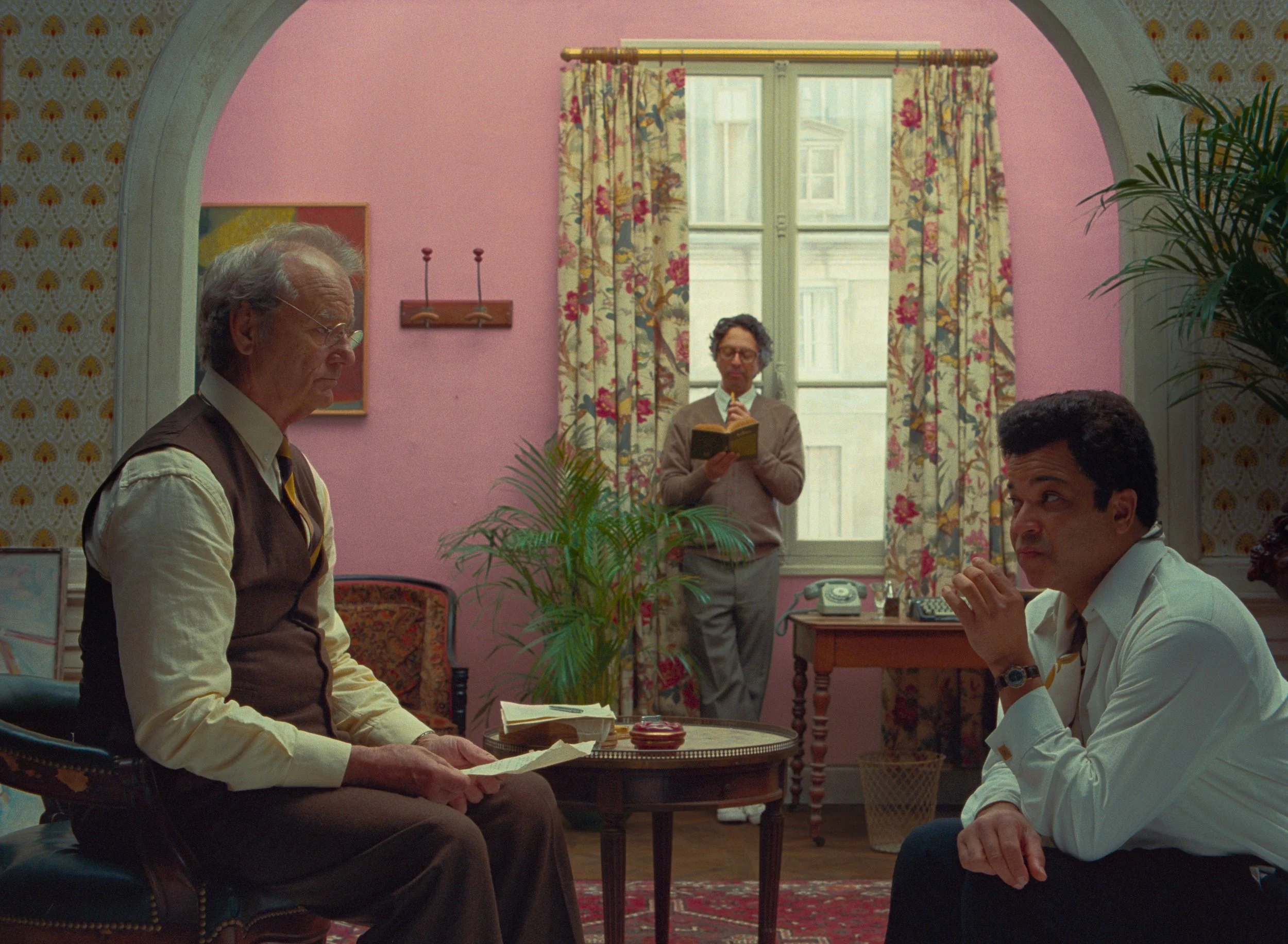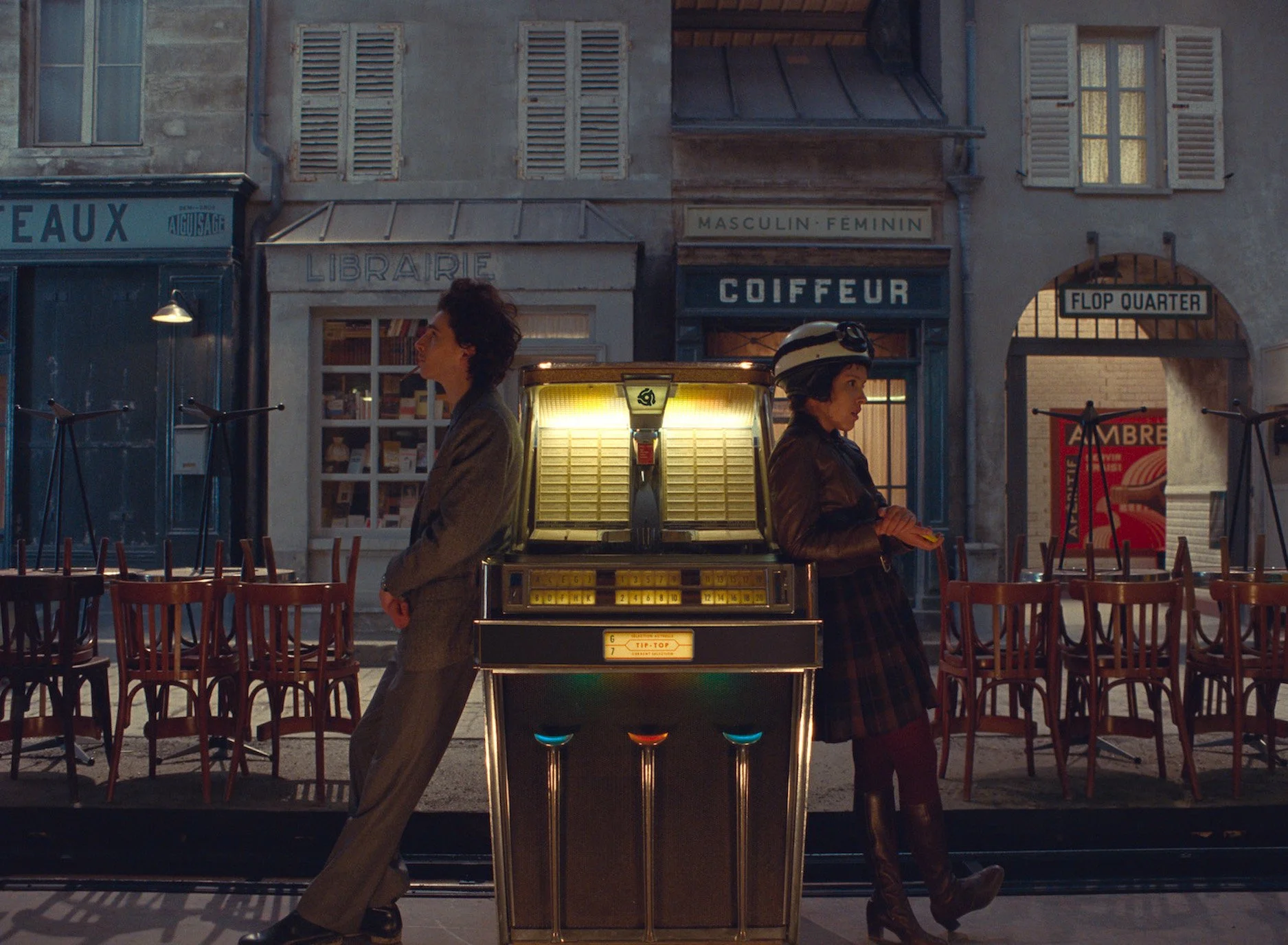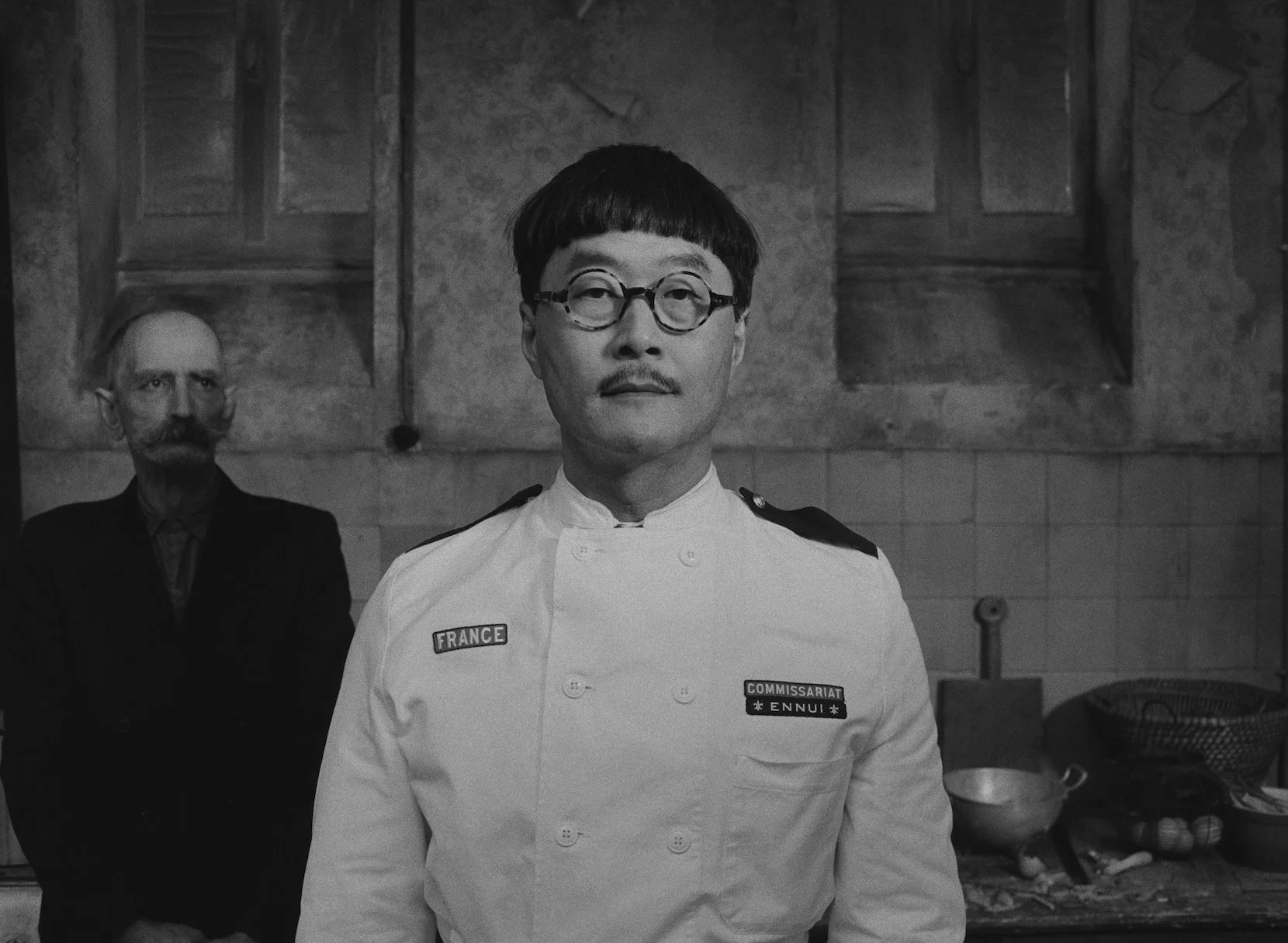Une Grande Illusion
Twee director Wes Anderson out-Andersons himself with a sort of reimagining of ‘The Grand Budapest Hotel’ but with way less plot, way more preciousness and no one to tell him ‘no!’
The french dispatch
Director: Wes Anderson • Writer: Wes Anderson
Starring: Bill Murray, Owen Wilson, Tilda Swinton, Frances McDormand, Jeffrey Wright, Angjelica Huston, Benicio del Toro, Timothée Chalamet, Stephen Park, Everybody
USA • 1hr 48min
Opens Hong Kong Dec 2 • IIB
Grade: C
Wes Anderson is George Lucas.
When Lucas was at the top of his game, he had a producer, Gary Kurtz, who (the theory goes) reined in Lucas’s extravagances and tempered his worst in instincts. Debate rages on the nature of his departure, but Kurtz left Lucasfilm before production on Return of the Jedi started and we all know how things went from there. Jedi has its strengths, and the Disney sequels make Lucas’s own prequel trilogy look Shakespearean in construction — Rian Johnson’s entry excepted. Fight me! — but Lucas was really firing on all cylinders when he had Kurtz to tell him “No.”
Wes Anderson needs a Kurtz. Wes Anderson needs studio notes. Wes Anderson needs someone to tell him “No.”
The French Dispatch is simultaneously career zenith and nadir, and where you stand on the tolerance scale for Anderson’s proclivities will determine whether you head right back to the box office for another ticket or inot the nearest bar to drink the memory of the whole thing away.
The latest from Hollywood’s leading architect of twee and maestro of preciousness is (technically) The French Dispatch of the Liberty, Kansas Evening Sun, a rambling, shambling exercise in dollhouse storytelling, picaresque whimsy and hyper-verbosity. Anderson’s self-proclaimed “love letter to journalists” takes all the signature elements that made 2014’s The Grand Budapest Hotel his biggest commercial success — mixed ratios, formats, colour, off kilter framing, ultra-stylised dialogue, random background visual noise, random animation — and cranks them all way to 17.
What little story there is starts with The French Dispatch magazine (loosely based on The New Yorker, because of course it is) and its editor Arthur Howitzer Jr (Anderson muse Bill Murray, not as insufferable as he usually is) putting together the next issue. When Howitzer has a sudden heart attack and dies, the staff carry on, now putting together a memorial issue of sorts, as well as an obituary to their late benevolent overlord.
After a brief introduction to the town of Ennui-sur-Blasé — and if that’s not the most Anderson bloody thing ever then nothing is — by Dispatch travel writer Herbsaint Sazerac (Owen Wilson, second only to Murray for Anderson appearances), Howitzer’s first contributor, JKL Berensen (Tilda Swinton) tells her story, “The Concrete Masterpiece.” It details the creation of modern master Moses Rosenthaler (Benicio del Toro) by shady art dealer Julien Cadazio (Adrien Brody), even though the former is in prison. Cadazio’s plans for more glory are thrown out of whack when Rosenthaler’s long awaited new paintings turn out to be on the prison’s walls.
“Revisions to a Manifesto” stars manling Timothée Chalamet (who’s really starting to show his narrow range) as student revolutionary Zeffirelli, who Dispatch writer Lucinda Krementz (Frances McDormand) strikes up a romance with while helping him complete his manifesto. There are many artistic meetings at the student hangout Café Le Sans Blague, which no joke means “no joke,” until Lucinda decides Zeffirelli should turn his attentions to the more age appropriate and non-journalistically conflicted Juliette (Lyna Khoudri). This is far and away the dullest of the anthology’s parts.
In the last and arguably best segment, “The Private Dining Room of the Police Commissioner,” food writer Roebuck Wright (Jeffrey Wright) recounts how Stephen Park’s cop-chef Lt Nescaffier (the “witty” plays on words that feel more like dad jokes keep on coming), outsmarts some kidnappers (Edward Norton and Saoirse Ronan among others) that are holding the Ennui police commissioner’s son for ransom.
Now, all that said, Anderson has his stans and they will be all in on The French Dispatch, which admittedly has been lavished with rave reviews since its premiere at Cannes (where else?). And as usual the devil is in the details, and Anderson is nothing if not detail oriented. Every meticulously composed frame, every painstakingly constructed shot (by regular DOP Robert D Yeoman), every fragment of colour blocked complementing set design is packed to brimming with charming and droll asides that reward repeat viewing. And there are some bittersweet observations here, chiefly in “The Private Dining Room,” where Roebuck and Nescaffier commiserate on their shared outsider status, and a few jabs about the inherent falsity of the art industry. And hey, kudos for avoiding any tone deaf Japan fetishising à la Isle of Dogs. Shudder.
But, and it’s a huge but, Dispatch is lacking the melancholy soul, however thin, of some of Anderson’s earlier films. He spends so much time crawling up his own butt he forgets to tell a story we want to follow and to create characters we care about. At its core it’s hollow. Even running well under two hours — a blessed rarity these days it seems — the film drags itself across the finish line, and the stacked cast is a distraction rather than a treat. Those irritated by Anderson under normal circumstances are going to break out in giant hives watching this. Anderson has already announced is next film is going to be some kind of spin on romantic-comedy. A twee Wes Anderson rom-com. Imagine a filmmaker that’s all about contrivance tackling the most contrived of genres. A match made in heaven. Or hell. Dealer’s choice.




